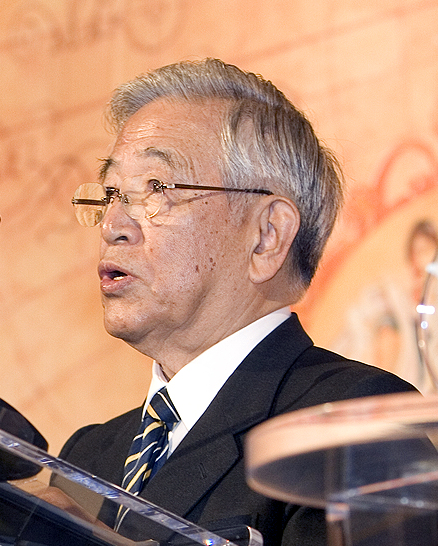Shoichiro Toyoda, son of Toyota founder, dies aged 97
Shoichiro Toyoda, the son of Toyota Motor Corp founder and father of current chief executive Akio Toyoda, died on Tuesday of heart failure, the company said. He was 97. Toyoda, who joined Toyota in 1952, presided over the Japanese automaker's expansion into manufacturing in the United States, the launch of the luxury Lexus brand and the Prius hybrid, and the global recognition for pioneering a new model for quality control in manufacturing.

Shoichiro Toyoda, the son of Toyota Motor Corp founder and father of current chief executive Akio Toyoda, died on Tuesday of heart failure, the company said. He was 97.
Toyoda, who joined Toyota in 1952, presided over the Japanese automaker's expansion into manufacturing in the United States, the launch of the luxury Lexus brand and the Prius hybrid, and the global recognition for pioneering a new model for quality control in manufacturing. He died less than a month after his son, Akio Toyoda, 66, the third-generation of the founding family to run the automaker, announced that he was stepping down as president and would become chairman.
"Shoichiro Toyoda raised Toyota to become the world's top automaker," Japan's Prime Minister Fumio Kishida said in a statement of condolence. Toyoda, who studied engineering as a graduate student at Tohoku University, said he never forgot his father's reminder that "an engineer belongs on the factory floor."
His first job at Toyota, he recalled, was inspecting cars that had been returned for defects. In 1957, after being assigned to test drive Toyota's Crown across the United States, he recommended the company start exports. Sales of the car, which Americans found dangerously underpowered, were later cancelled.
"It was a serious mistake," Toyoda said later. "Still, I learned from my misjudgement and became determined to develop a high-quality car." In the 1960s, Toyoda was one of the executives charged with implementing a new "total quality control" system based on the ideas of an American professor, William Deming. Under the system, later copied by other automakers and companies in other industries, workers were encouraged to contribute suggestions to improve production and reduce defects.
"The program transformed Toyota's corporate culture," Toyoda later wrote in a serialized memoir carried by the Nikkei newspaper. Toyoda was named a managing director at Toyota in 1961 for his work on quality. In 1981, he was named to head Toyota's sales organization.
Following a merger of production and sales organisations a year later, he took over the helm of the newly integrated Toyota Motor Corp, serving as chairman from 1992 to 1999. As head of the Japanese business lobby Keidanren from 1994 to 1998, Toyoda lobbied to deregulate growth industries like mobile phones and to cut the corporate tax rate.
Toyoda joined Toyota two years after his father, Kiichiro, was forced to step aside as Toyota president when the company ran into financial difficulties and needed a bank bailout brokered by the Bank of Japan. "I have not forgotten," he said in 2014 when recounting how Japan's central bank helped save the automaker 1950.
He also said his career had taught him that no company was bound to last and that most declined after 30 years.
(This story has not been edited by Devdiscourse staff and is auto-generated from a syndicated feed.)










